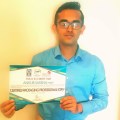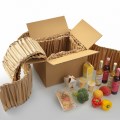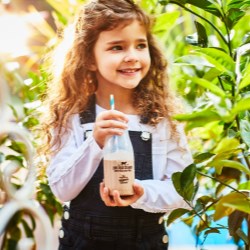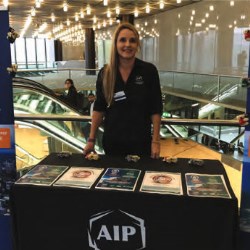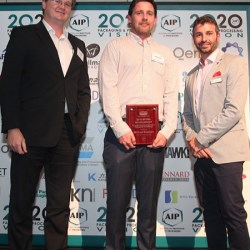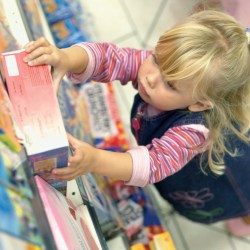If this is your company, CONTACT US to activate Packbase™ software to build your portal.

The AIP would like to congratulate our latest Certified Packaging Professionals (CPP) Carol Kilcullen-Lawrence PhD, FAIP, CPP and Kailash Bajpai MAIP, CPP, R&D Team Leader - Milk, Beverage, Cheese, Parmalat Australia.
HOW LONG HAVE YOU BEEN IN THE INDUSTRY? WHAT ARE YOUR AREAS OF EXPERTISE?
CL: I arrived in Melbourne in 1992, intending to stay for 3 years. However, with a background in Biological Chemistry and a PhD in Polymer Chemistry, after 5 weeks found myself working as a technical service chemist at Jac Australia (now Avery Labels). I was testing label stocks, to recommend the best self-adhesive label to match both the product, it’s packaging and the labels intended print method. So over my 26 years in the labelling side of packaging, I have seen almost endless combinations of label print carrier, adhesive and release liner – the backing which is removed to apply the label.
It is really important to select the right label for the package by considering key criteria. For example the adhesive needs to be matched to the package in at least three ways: is it to be a permanent or removable label; is it applied at ambient, elevated or cold (and potentially condensated) surfaces; how is the label going to affect the package once applied in terms of recyclability or migration of the adhesive?
KB: I have over 20 years experience in the Packaging industry. I have extensive experience in developing packaging for a wide range of food and non-food products. I have experience in efficiency improvement through waste & cost reduction programs. I have worked with packaging material manufacturers as well as users, which gives me unique insights into packaging manufacturing and its usage in a commercial environment.
WHAT MADE YOU APPLY FOR THE CERTIFIED PACKAGING PROFESSIONAL DESIGNATION?
CL: Labels are just one, often small, part of the package, however they are applied to an endless array of products. With my current focus on sustainability of packaging it was a natural step to want to learn more about all the different packaging formats to see where sustainable labelling can be maximised.
KB: I already had a formal Post Graduate qualification in Packaging Technology through the Indian Institute of Packaging. However, I am firm believer in continuous learning and keeping abreast of the latest trends and technologies in delivering innovative and commercially viable solutions to the business. The CPP, through the AIP offers a structured yet very practical way, to keep on top of the Fundamentals of Packaging Technologies and learn from other’s experiences.
HOW IMPORTANT IS ATTAINING THE CPP DESIGNATION TO YOU AS AN INDIVIDUAL?
CL: I have been inspired by the number of packaging professionals who have chosen to attain the CPP in this part of the world and I love to study, as learning is a lifelong journey. Even though I knew I had the years of experience to qualify, it can be daunting sitting for an exam. I would encourage each and every packaging professional to get a copy of the Fundamentals text book from the AIP and just start reading it, as it unfolds in a very logical manner, and you will know by the time you get part way through that achieving the CPP (or Certified Packaging Professional CPIT) is definitely achievable.
KB: Even though I had formal Packaging credentials, the CPP gave me the opportunity to refresh my knowledge of Science behind material manufacturing and their interaction with products and machines in current environment. Practical examples correlated and have reinforced my experience and understanding of Packaging Technology.
HOW IMPORTANT IS THE CPP DESIGNATION FOR THE GREATER RECOGNITION OF PACKAGING PROFESSIONALS?
CL: The importance of the CPP designation is still emerging, in a very positive way. It is a very important progression for our industry – particularly to identify packaging professionals who have years of experience, so that younger entrants to our industry can seek out their support and mentorship. On that note if anyone is thinking of attaining CPP, I am more than happy to share my experience and study methods to guide you through the process.
KB: In Australia, there is lack of opportunities for individuals to get a structured and international recognised skills in Packaging Technology. The CPP, course through the AIP, offers an excellent opportunity for people to get that accreditation. The CPP is now accredited in 52 countries and numbers are growing. For the industry too, the CPP will bring new talents and professionals who will continue delivering innovative and sustainable packaging solutions for years to come.
For more information about how to become a certified packaging professional, email [email protected].


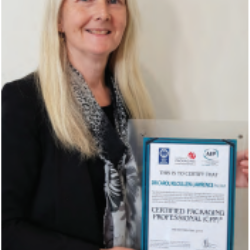


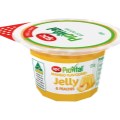

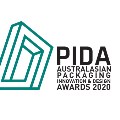
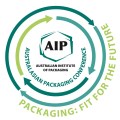
.jpg)






